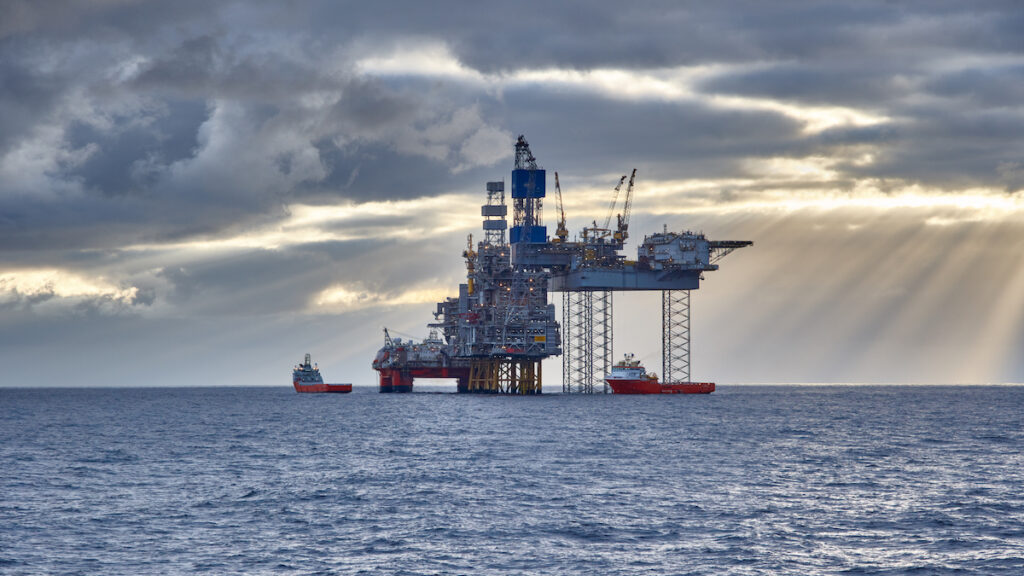Rapid investment coupled with the testing and development of innovative technologies can unlock the potential of the UK’s low carbon economic opportunity, according to a new report.
The study, by the Net Zero Technology Centre and business consultancy Accenture, lays out a series of robust recommendations to help enable the delivery of the North Sea Transition Deal’s (NSTD) emissions targets and the creation of a net-zero energy system in the North Sea.
The report, ‘Technology Driving Green Energy Growth,’ highlights that a focus on testing and development of innovative technologies is needed to unlock the low-carbon opportunity within the UK. Further, it recommends rapid investment to address today’s challenge of expensive and immature technologies.
By 2030, the UK must generate 10 gigawatts (GW) of low-carbon hydrogen, with at least 5GW being green hydrogen, and create four carbon capture and storage (CCS) clusters to meet the NSTD targets. The NSTD seeks to unlock up to £16bn of investment, secure up to 40,000 energy jobs and reduce emissions by up to 60m metric tons per year.
The report identifies opportunities in hydrogen, floating offshore wind and CCS, prioritising three recommendations that will accelerate rapid, early roll out of critical, affordable net-zero technologies to help meet the NTSD commitments:
- Industry should be supported and incentivised toward rapid test and deployment of technologies to drive improvements in efficiency, modularity and scalability that will reduce levelised costs by at least 50 per cent across offshore wind solutions, electrolysers, carbon capture technology and innovative materials.
- Government sponsorship and championing of the delivery of test and demonstration centres would de-risk, standardise and scale promising technologies.
- An infrastructure plan should be constructed to transport, transmit, store, and manage new energy commodities such as hydrogen, ammonia, renewable electricity and CO2.
The report anticipates that, if the opportunities identified are realised, it would reduce the cost of green hydrogen by up to 60 per cent; reduce the cost of floating wind by up to 40 per cent through optimised integration; and de-risk blue hydrogen, lowering the cost of delivery and enabling a future import market for CO2.
Colette Cohen, CEO, Net Zero Technology Centre said: “We’ve reached a point where climate change, energy security and the cost-of-living crisis have culminated in a perfect storm. A storm that we can no longer weather without urgent action through commitment and investment in new affordable low-carbon technologies. In the report we have identified key opportunities and created a call to action so that innovation can be driven at pace, jobs secured, and net-zerotargets met.”
Carlo Procaccini, head of technology, North Sea Transition Authority, said: “Investing in technology research and development is going to be crucial to deliver the North Sea Transition Deal commitments, and ultimately net zero by 2050. We need to adapt and deploy our traditional offshore oil and gas technologies for the new challenges of carbon capture utilisation and storage, floating offshore wind, and hydrogen, working across different energy sectors and anchoring the supply chain in the UK. This represents a key opportunity for our industry, requiring a prompt response in terms of technology focus and investments.”
Ekaterina Kozinchenko, energy transition lead for UK and Ireland, Accenture, said: “New solutions are required throughout the supply chain and operations of the oil and gas sector to achieve key sustainability goals like the NSTD targets. Such solutions can be developed based on scientific methods, technology innovation, and improved economics. While investment is required now, all stakeholders must also align and collaborate closely to ensure that it is deployed efficiently to meet the demand for net-zero energy.”
Katy Heidenreich, OEUK’s supply chain and operations director said: “With over 50 years supporting offshore operations, our UK supply chain has the skills and capability, and a track record of driving innovation, to lead the transition to a low-carbon energy future. Just one example of this is highlighted in OEUK’s Supply Chain CCS Capability & Capacity report. The excellent report by the Technology Leadership Board, Net Zero Technology Centre, and Accenture helps to further outline what support is needed to help these world-class companies accelerate green energy technologies, cut emissions and deliver a net-zeroindustry by 2050. Transforming the supply chain is at the heart of the North Sea Transition Deal and provides the foundation for helping UK companies successfully win opportunities in at least half the new energy projects ahead.”
UK Government Minister for Scotland Malcolm Offord said: “The report is a very useful contribution to the conversation about how we deliver a net zero future.
“The North Sea Transition Deal is a key driver for delivering the skills, innovation and new infrastructure necessary to facilitate the UK embracing renewable energy. The UK Government is also investing £90 million in the Net ZeroTechnology Centre.
“The UK Government and energy sector continue to work closely together, recognising the oil and gas industry has a massive contribution to make in our transition to net zero. We still need to maintain our domestic energy security and ensure that skills are harnessed to move into renewables and achieve netzero by 2050.”
